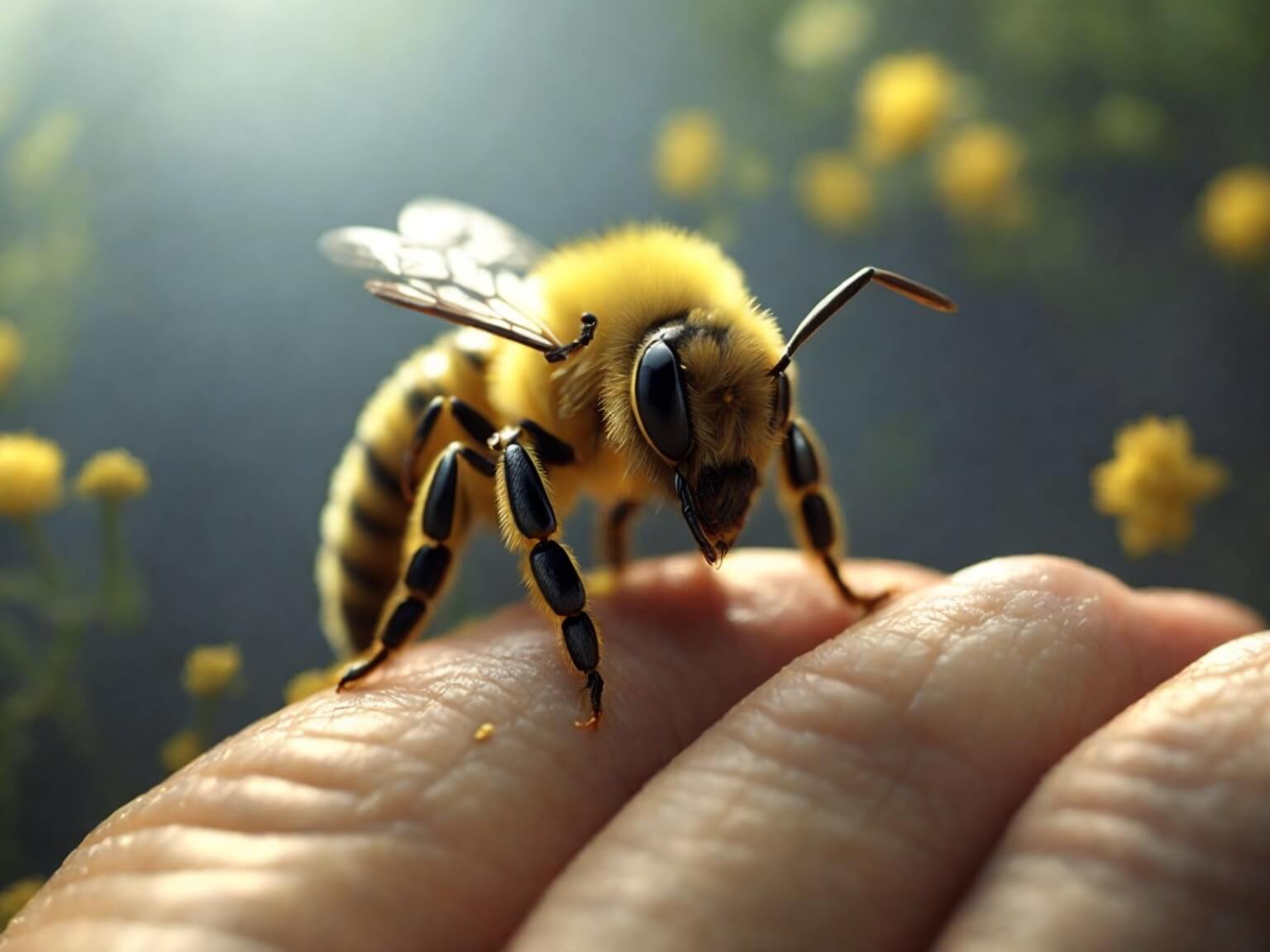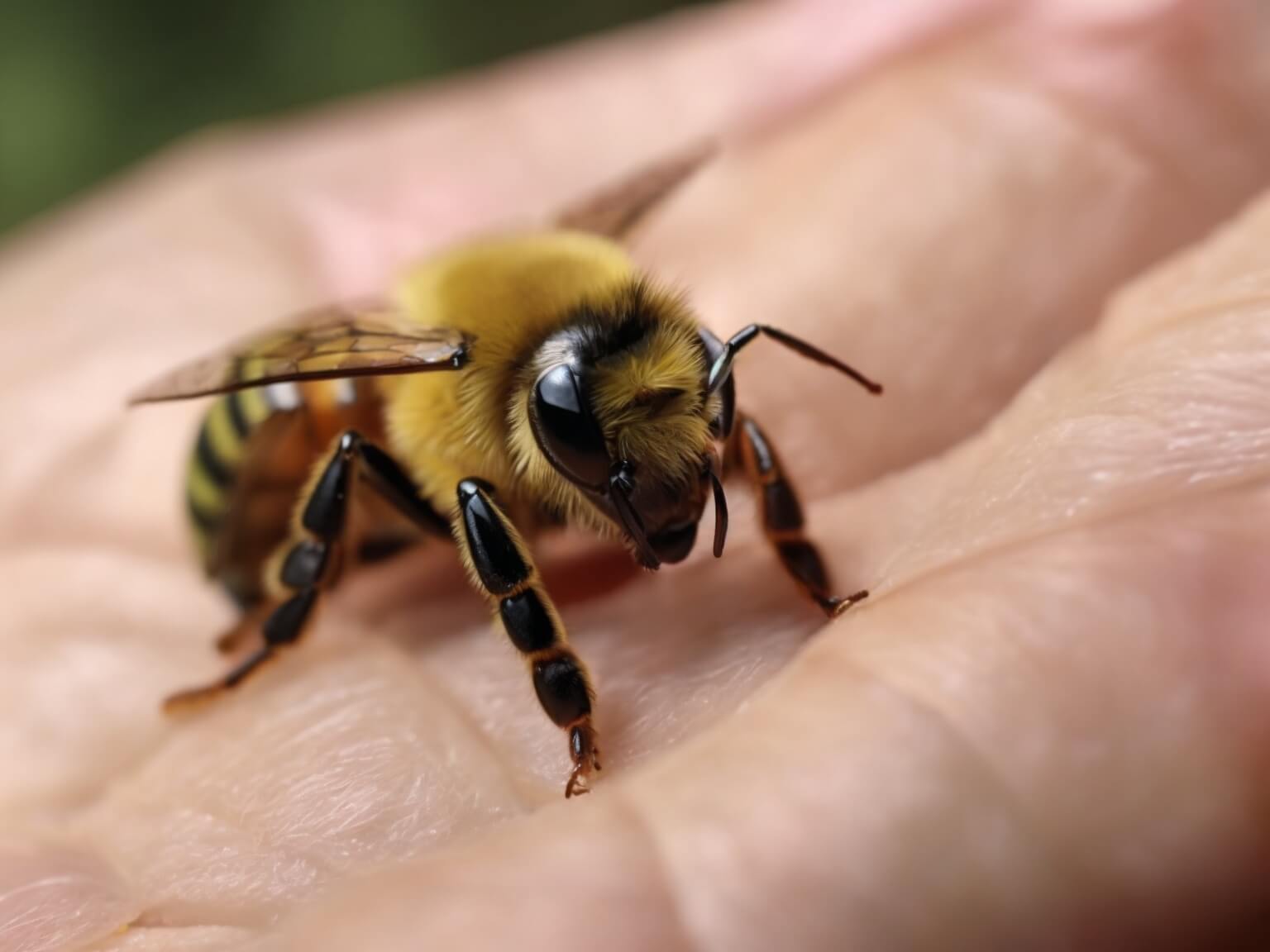There’s often a perception that beekeepers must get stung all the time since they work closely with swarms of buzzing bees. Movies and TV shows frequently depict beekeepers covered in bees and being stung repeatedly. In reality though, experienced beekeepers understand how to carefully handle hives and avoid getting excessive stings. While an occasional sting now and then is expected, most beekeepers do not suffer major stinging incidents in the normal course of their work. With proper protective clothing and gentle techniques, beekeepers can work their hives relatively sting-free. In this article, I’ll share some insights on how frequently beekeepers really get stung, and how they work to avoid and minimize it. The truth might surprise you!
The Protective Gear Beekeepers Use
One of the key ways beekeepers avoid getting excessive stings is by utilizing protective clothing and equipment when working their hives. Most beekeepers wear full-body suits or jackets that cover all exposed skin. Veils worn over the head and neck prevent bees from reaching the vulnerable face and neck area.
Leather or thick rubber gloves also provide a sting-proof barrier for the hands and wrists. Sturdy boots protect the feet and lower legs as well. Beekeeping suits are usually light colored to avoid triggering the bees’ defensive response to dark colors.
Beekeepers also carry smokers which generate cool smoke that helps camouflage their intrusion and mask alarm pheromones. The smoke has a calming effect that makes the bees less reactive. All this protective gear creates essential barriers between the beekeeper’s exposed skin and potential stings. While no suit is 100% sting-proof, the right equipment greatly reduces risk.

Sting Avoidance Strategies and Gentle Beekeeping
Even with protective gear, as a beekeeper I’m always cognizant of staying calm and using gentle techniques when inspecting hives. Bees can detect adrenaline and get more defensive if they sense I’m anxious or stressed. I’m careful to move smoothly without jostling frames. I avoid crushing or startling the bees needlessly.
Using my smoker judiciously when needed, but not over-smoking the hive, keeps the colony tranquil. I don’t want to alarm them excessively. I also close up the hive calmly when I’m finished rather than rushing. Moving patiently and deliberately and handling the frames with care shows the bees I’m not a threat.
Staying calm myself, working hives gently, and not alarming the colony unnecessarily goes a long way toward avoiding making the bees defensive. This conscientious beekeeping allows me to keep stings to a minimum during routine inspections.
Minor Stings Are Common but Not Pervasive
Even being very careful around my hives, I’ll still get an occasional minor sting now and then – it’s just an inevitable part of the job. With thousands of bees in a hive, there’s always a chance one will sting if accidentally crushed or trapped against my clothing. But these rare incidents are mild and to be expected.
While an accidental sting may happen a few times throughout a season, severe stinging events with dozens of stings are extremely uncommon for me. My mentors taught me early on how to handle hives gently, use smoke properly, choose docile stocks, and avoid inciting mass stinging defense.
So in my experience, minor stings may happen on rare occasion but being seriously stung multiple times during one hive inspection is quite anomalous for a proficient beekeeper. A sting or two is perfectly normal. Constant major stinging incidents would be highly unusual and prompt investigation into what went wrong.
Reactions to Stings Range From Mild to Severe
When I do get an occasional sting, my personal reaction is just minor swelling and localized pain that fades within an hour or so. However, I know beekeepers that have gotten very severe reactions to stings with extended swelling, burning pain, headache, nausea, and other troubling symptoms.
Everyone responds differently based on their sensitivity levels. For those who are highly allergic, just one or two stings can trigger dangerous anaphylaxis requiring immediate medical care. Thankfully I don’t have severe allergies, but others are not so fortunate.
All beekeepers have to objectively know their own body’s response to stings and take proper precautions. Those with minor reactions like myself can shake off a sting and keep working. But others with more concerning reactions need to carry EpiPens and be prepared to cease working if stung. Understanding your response is crucial.

Sting Frequency Depends on Experience Level
In my conversations with other beekeepers, those just starting out definitely report getting stung more frequently than us veterans with years under our belts. When I was a novice, I’d get an occasional sting every few inspections as I learned the ropes. Now after gaining extensive experience, I rarely get stung at all during routine hive work.
New beekeepers are still developing the fine-tuned dexterity and calm presence needed to handle frames and bees without crushing them. With practice over time, your hands get steadier and movements smoother. You learn to read bee behavior and respond appropriately.
The less experienced you are, the more mishaps occur that can lead to stings. But the sting frequency drops significantly once you become truly proficient at gently manipulating the hives and handling the bees properly. It just takes time and experience to get to that sting-free comfort level.
Rapid Desensitization Is Common
An interesting phenomenon I’ve noticed over the years is that my body seems to have developed immunity and become desensitized to bee stings. When I first started out, a sting would really swell up, throb, and bother me for many hours. But now after being stung periodically, my reaction is minimal pain and itching that fades fast.
This rapid desensitization is quite common in beekeepers as we’re exposed to venom over time. Our immune system seems to build antibodies that minimize the inflammatory response. Stings that once incapacitated me can now be quickly shaken off and I can get back to work.
Of course, severe allergic reactions are a different matter. But for most beekeepers, the discomfort and magnitude of reaction decreases dramatically as we develop tolerance. My mentors all experienced the same thing over their careers. In that sense, minor stings end up inoculating us!
When Stings Call for Medical Attention
While I have built up personal immunity, I’m always cognizant that some beekeepers can have severe, even life-threatening allergic reactions to stings. Signs like rapid swelling far from the sting site, difficulty breathing, racing heart, dizziness, vomiting or nausea all point to anaphylaxis.
If I or anyone else exhibits these concerning symptoms after a sting, immediate medical care is mandatory. Waiting through severe reactions could be fatal. All beekeepers need to carry emergency epinephrine like an EpiPen in case urgent treatment is required.
We have to objectively assess sting reactions in ourselves and others and be prepared to call 911 if it goes beyond local swelling and pain. Beekeeping does involve some assumed risk. But we have to be ready to get help fast when the rare severe reaction does occur, just to be safe. Don’t mess around if it looks serious!
The Commitment Involved in Beekeeping
At the end of the day, my passion for bees and beekeeping outweighs concerns over occasional minor stings. Handling and interacting closely with thousands of insects does involve some occupational hazard. While I utilize every tool and technique to minimize stings, I accept the tiny bit of pain as a reasonable trade-off.
To me, the rewards of nurturing a colony, harvesting honey, benefiting the environment, and working intimately with these amazing creatures far outweigh the downside of an infrequent sting. That’s a risk I’m willing to take to do what I love.
Beekeeping is not for the faint of heart. If you’re squeamish about all forms of insect stings, it may not be for you. But for those drawn to the craft like me, a rare sting now and then seems a small price to pay. I’ll gladly bear that bit of discomfort to have the privilege of being a beekeeper!
In closing, while beekeepers certainly do get stung on occasion, it is not the constant hazard some imagine when we work our hives properly. With the right protective gear, gentle techniques, quality smoke, and experience, stings become infrequent events during routine inspections.
For me, the joys of beekeeping greatly outweigh the nuisance of an occasional sting. I accept that tiny bit of pain as part of working closely with these vitally important pollinators that I love. With the proper precautions and handling, bees and beekeepers can coexist peacefully with minimal stinging conflicts. A rare sting doesn’t deter me one bit from the never-ending rewards of being an avid lifelong beekeeper!
